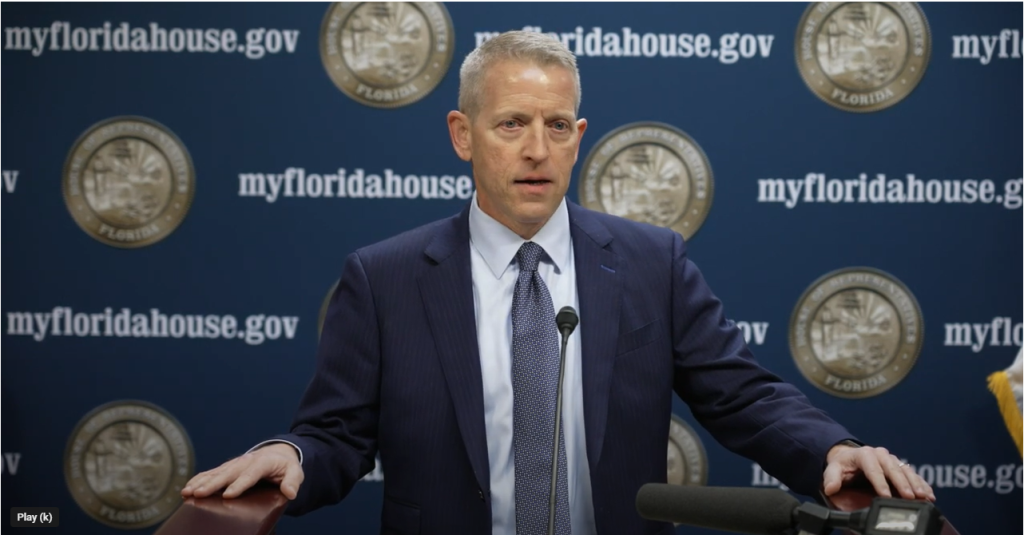
Editor’s note: Last week, Florida House leaders announced the filing of HB 1, a landmark bill that would expand education choice and customization to all students in the state through the availability of education savings accounts. If passed, the bill would also allocate enough funding to aid all students currently waiting to be awarded ESAs through the Family Empowerment Scholarships for students with Unique Abilities program. Here are excerpts from House Speaker Paul Renner’s remarks at a news conference. You can watch the event in its entirety here.
As I reflect on the bill we file today, I’m reminded that every single child in this state and this nation grows up with dreams, and as we celebrate Martin Luther King this week, I’m reminded of his dream that every child would one day reach their full potential.
Today’s bill is about doing exactly that and making sure every child in Florida reaches their full potential educationally. And on a more fundamental level, it’s really about freedom and opportunity.
And so today, we empower parents and children to decide the education that fits their needs. And one of the things I’m most excited about is that we currently have a waitlist for children with unique abilities. And it is a tragic thing for a parent to have to say no to their children to have the resources they need in this situation…this bill will completely clear the waitlist for our children with unique abilities.
I think you’re going to see bipartisan for his bill. Maybe I’m going out on a limb, but I don’t think so. I think people realize more and more how powerful it can be. Look, every business, everywhere we shop, has an entrance and an exit except in our public schools, traditionally, where you have to go to the school wherever you’re zoned for and that’s it, whether that school meets your needs or doesn’t meet your needs.
And we have great public schools. There are many people looking to hit the entrance into public schools…. but every school, like every business, should have an entrance and exit. And if the schools are performing well, more people will hit the entrance. If they’re not, more people can hit the exits.
And this bill in a powerful way provides both an entrance and an exit to all of our schools so we can match people up in the best way possible.
And the ESA component to the bill allows choice within choice, so that you can truly get to the goal of customized education.
Even brothers and sisters learn differently. Some are good in math; some are good in English. And this allows, as we look toward the choice navigator, to give advice and counseling, not dictates, but advice on based on scores, based on what’s going on in that child’s life which the parent uniquely knows, to further enhance and customize that child’s experience so we get the maximum potential out of every single child in the state.
I grew up and went to traditional public school my entire time. I got a good education. My mother was a public-school teacher. Many people will stay right where they are because they’re happy. But this is really about making sure there is increased competition and always striving to do better.


